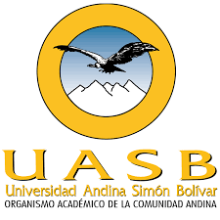Resource information
Reflecting on both the Mining Code of 1886 and the subsequent amendments administered to said code in 1892, this investigation endeavors to evaluate the immense impact that its implementation caused in Ecuador’s geographic space. These laws inaugurated criteria for the demarcation of mining properties; noteworthy acts that strengthened the state’s dominion over subsoil and the obtention of perks concerning concessionaires. The adoption of new mining law principles facilitated the arrival of foreign investors interested in the exploitation of gold-bearing mineral deposits. This investigation’s conclusions reveal that mining legislation was formed by dynamically integrated protagonists from distinct ranks who restructured Ecuador’s geographic space in the areas where these valuable mineral deposits could be found. Furthermore, this piece explores the tension between the needs of economical liberalism, at the national level, and the expansion of the mineral extraction industry, at the regional level, towards the end of the 19th century.


